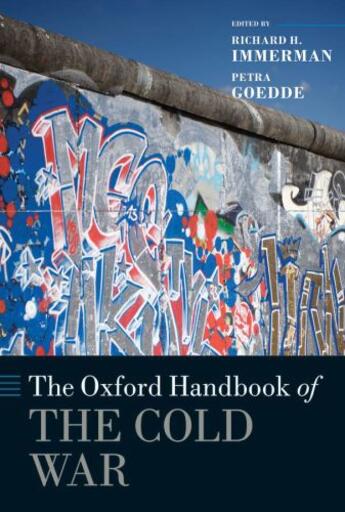-
Nombre de pages : (-)
-
Collection :
(-)
-
Genre :
(-)
-
Thème :
Non attribué
-
Prix littéraire(s) :
(-)
Résumé:
The Oxford Handbook of the Cold War offers a broad reassessment of the period war based on new conceptual frameworks developed in the field of international history. Nearing the 25th anniversary of its end, the cold war now emerges as a distinct period in twentieth-century history, yet one... Voir plus
The Oxford Handbook of the Cold War offers a broad reassessment of the period war based on new conceptual frameworks developed in the field of international history. Nearing the 25th anniversary of its end, the cold war now emerges as a distinct period in twentieth-century history, yet one which should be evaluated within the broader context of global political, economic, social, and cultural developments.
The editors have brought together leading scholars in cold war history to offer a new assessment of the state of the field and identify fundamental questions for future research. The individual chapters in this volume evaluate both the extent and the limits of the cold war's reach in world history. They call into question orthodox ways of ordering the chronology of the cold war and also present new insights into the global dimension of the conflict.
Even though each essay offers a unique perspective, together they show the interconnectedness between cold war and national and transnational developments, including long-standing conflicts that preceded the cold war and persisted after its end, or global transformations in areas such as human rights or economic and cultural globalization. Because of its broad mandate, the volume is structured not along conventional chronological lines, but thematically, offering essays on conceptual frameworks, regional perspectives, cold war instruments and cold war challenges. The result is a rich and diverse accounting of the ways in which the cold war should be positioned within the broader context of world history.
Donner votre avis















